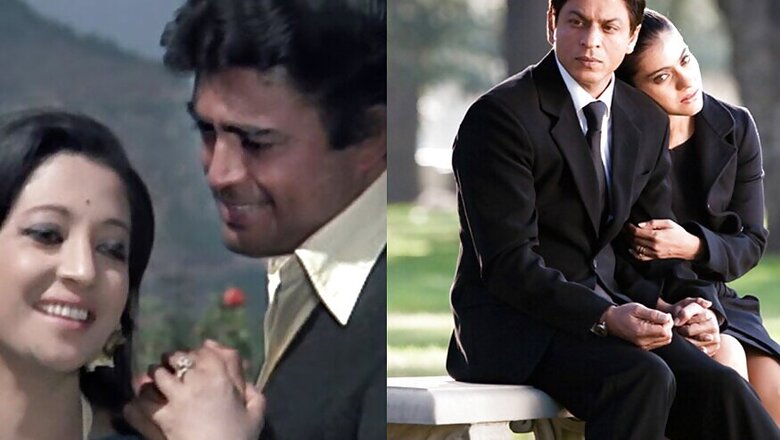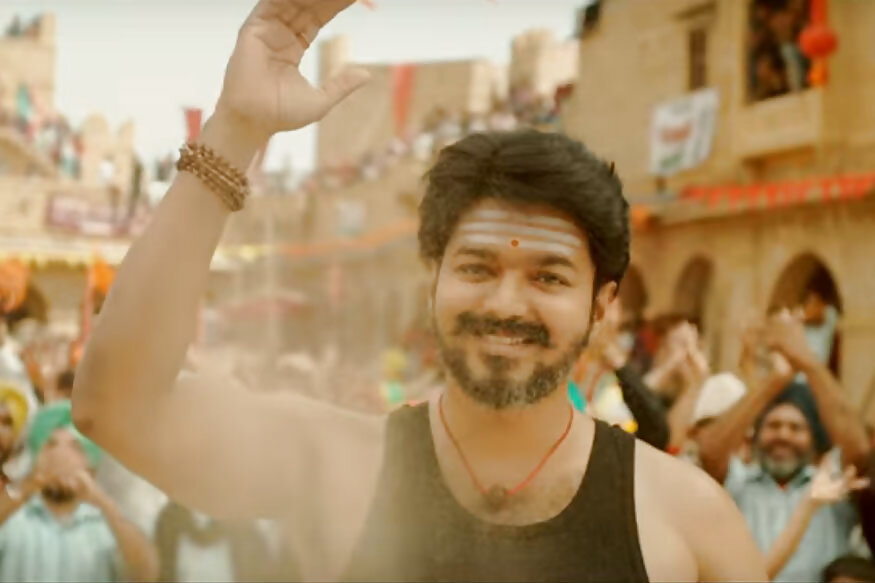
views
Not all movies and documentaries that are made are successful enough in making it to the theatres; in fact, there are many that are banned for reasons ranging from offensive plots to violent language and political reasons. The latest addition to an existing long list of films that have courted controversy because of their content is actor Vijay’s recent release Mersal.

Last week, the BJP was visibly irked with a sequence in the film wherein a character played by Vijay questions the need of the recently introduced Goods and Service Tax. In the sequence that lasts for close to two-and-a-half-minutes, Vijay asks the reasons that deters a country with a GST rate of 28% from providing good healthcare to its people. Rather than initiating a prolific exchange of perspectives, the BJP went on to revile superstar Vijay.
Amidst the ongoing Mersal debate, we get you the list of all controversial films and those banned projects that could never see the light of the day due to political reasons.
Aandhi (1975)
Gulzatr’s Aandhi hit the theatres when the citizens were already facing a tumultuous phase and the then Prime Minister Indira Gandhi had imposed emergency in country. The alleged reason for the ban on the film was the female protagonist’s (Suchitra Sen) bearing striking resemblance with the then ruling Prime Minister Indira Gandhi. As a leader of a political party, Suchitra’s striking similarity - in terms of the saris she wore, to her appearance and brisk walking style - with Mrs Gandhi couldn’t be ignored. What made the film more contentious were the inclusion of sequences depicting the protagonist smoking and drinking during their Assembly election campaign. The decision to impose the ban on the film was announced after the film had run of close to 20 weeks!
Kissa Kursi Ka (1977)
Faeturing Shabana Azmi and Raj Babbar in lead roles, this Amrit Nahata (an MP) directorial was a political which was banned by the Congress as it allegedly mocked the Emergency. The film’s print and copies were burned by those who supported the party. The film was released the same year after the government had changed.
Parzania (2005)
Rahul Dholakia's controversial film Parzania may have been appreciated for the way it dealt with Gujarat riots. But it faced ban in the state of Gujarat due to the religious issues that were shown in the film- which could have provoked further violence. The film - featuring Naseeruddin Shah and Sarika in the lead roles- was inspired by the true story of a Parsi boy who disappeared after the February 28, 2002 Gulbarg Society massacre. Many cinema owners decided not to screen the film because they feared a political backlash from the ruling party.
Firaaq (2008)
Nandita Das’ directorial which was based on post-Godhra riots was banned in Gujarat multiplexes. The move had surprised the the director who couldn’t understand the need to impose a ban. The film which put forth a hard-hitting depiction of families caught in the savage aftermath of the 2002 communal riots in Gujarat bagged 7 international awards, and critical acclaim at film festival across different countries. The film featured Naseruddin Shah, Paresh Rawal, Raghuveer Yadav, Deepti Naval, Sanjay Suri, Shahana Goswami and Tisca Chopra.
Black Friday (2005)
With a subject that was as controversial as 1993 Mumbai blasts, it was obvious that the film’s release would run into trouble. Inspired by the famous book Black Friday - The True Story of the Bombay Bomb Blasts by S Hussain Zaidi, the film’s release was stayed by the Bombay High Court as the trial of the 1993 Bombay blasts wasn't over yet. The film got a countrywide release in 2007.
Fire (1996)
Fire was the first in mainstream Indian cinema to have shown no inhibitions in exploring homosexual relations. While it introduced a taboo subject to the viewers, it attacked for its content. On the day of its release, Hindu fundamentalists and some political parties attacked theatres.
Water (2005)
Directed by Deepa Mehta, Water portrayed the hard and simple lives of widows that stayed in ashrams. The film’s concept didn’t go down well with the Hindus which resulted in damage of the posters on the ghats. Activist Arun Pathak had organised a suicide protest to stop the production of Water.
Hava Aane De (2004)
The reason why Hava Aane De was never released in India was the director’s refusal to accept the cuts as suggested by CBFC. The film was based on the growing tension between India and Pakistan.
My Name is Khan (2010)
This Shah Rukh Khan-starrer courted controversy when political parties demanded a ban on the film because he denied to apologise for his remarks supporting the inclusion of Pakistani players in Indian Premier League (IPL). The Sena had threatened to hold back the release of his movie in Mumbai today but theatre owners went ahead with the film's screening in 2010. The film featured Khan essaying the role of Rizwan Khan, a man who suffered from Asperger's Syndrome and is mistaken for a terrorist in post 9/11 America. He deicded to embark on a journey across the US to prove that he is innocent to Kajol. Since some theatres were attacked, director Karan Johar and some distributors decided to meet the city police to get additional security. The Maharashtra government got five battalions of the State Reserve Police Force to protect 63 cinema halls in the city that screened the film.



















Comments
0 comment